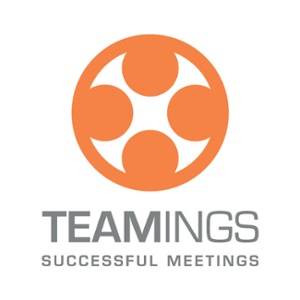Take a new look at the all-staff-meeting. There are several meeting technology products, communication tactics and meeting planning actions that can help make your next all-hands meeting a success. The co-founders of Isis Associates, Amy Jen Su and Muriel Maignan Wilkins wrote a very insightful piece on this very topic. Here are a few of their tips: Motivate with your meeting’s message: Make your message resonate by communicating ‘what’s in it for them’. Connect on a personal level: Long speeches and PowerPoint slides might not be the answer. Use staff meetings as way to connect with the human side. Use the opportunity to brainstorm ways to improve everyone’s work and effectiveness. Allow staff to praise and honor each other’s successes. Spend more time listening than you spend time talking. Diversify: Even the most charismatic leaders can get boring after a while. Plan to have multiple leaders, staff members and guests speak at the meeting to bring fresh perspectives. Engage outside of meetings: Staff in larger organizations usually only have contact with upper management during all-staff meetings or when something has gone wrong. Staff want to see and hear from leaders on a consistent basis, “…frequent, small touch points make a huge difference in making others feel engaged with their leadership. And, these things add tremendously to the usual meetings.” Along with these meeting tips, I would like to offer a few more. I’ve helped many clients organize town hall meetings over the past twenty years. Over and over again, I see management overlook several key areas in their meeting planning. After they implement these actions into the planning process, they find the meetings are more successful. Incorporate these communication tactics and planning actions into your next all-staff meeting and you’ll find increased success. An all-staff meeting can be an investment for your organization, supplying benefits long after the meeting is over. For more tips and insights, please sign up for our newsletter. It’s time to #StopBadMeetings.  All-staff or Town Hall meetings can be incredibly useful to an organization. An effective meeting can solve problems, build morale, promote teamwork, reinforce company culture, boost profitability, uncover weaknesses, generate ideas and increase productivity. Unfortunately, many all-hands meetings fall short of these goals. But that doesn’t mean leadership should give up on bringing everyone together by planning a successful meeting.
All-staff or Town Hall meetings can be incredibly useful to an organization. An effective meeting can solve problems, build morale, promote teamwork, reinforce company culture, boost profitability, uncover weaknesses, generate ideas and increase productivity. Unfortunately, many all-hands meetings fall short of these goals. But that doesn’t mean leadership should give up on bringing everyone together by planning a successful meeting.

